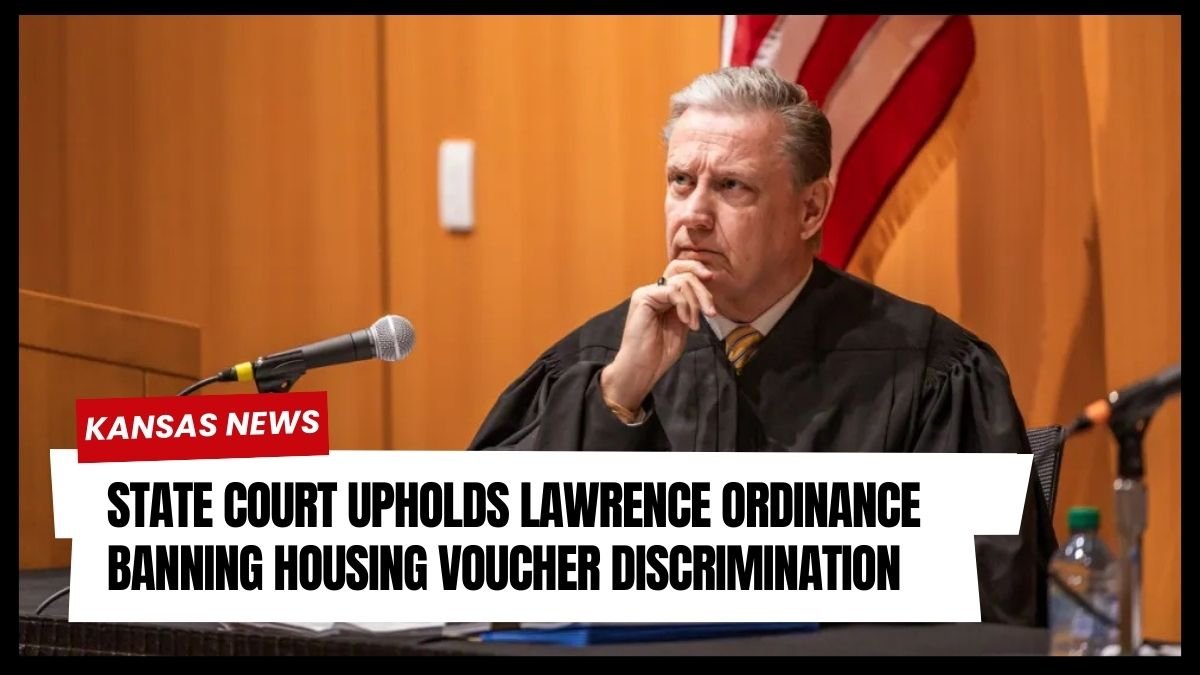The Kansas Court of Appeals has affirmed the City of Lawrence’s ordinance, which is designed to protect voucher recipients and ensure they have access to housing.
The court concluded that both state and local governments have a legitimate interest in preserving affordable and quality housing for all residents.
City of Lawrence Ordinance
In February 2023, the Lawrence City Commission approved a change to the city’s ordinance.
This amendment created a protected class based on renters’ source of income, as well as their status as survivors of domestic violence, sexual assault, human trafficking, or stalking.
Additionally, the ordinance prohibits discrimination based on immigration status. The ordinance came into effect on June 1, 2023.
Legal Challenges by Landlords
A group of more than 30 local landlords, organized as the Landlords of Lawrence, filed a lawsuit against the city. They argued that the language of the ordinance was overly vague and that it infringed upon their discretion as business owners.
However, in May 2024, Douglas County District Judge Mark Simpson ruled that the ordinance was clear and could remain in effect. He noted that the prohibited conduct was straightforward: landlords are not allowed to consider the source of a prospective tenant’s rent when deciding whether to rent to them.
Kansas Court of Appeals Decision
The landlords appealed the decision, and the Kansas Court of Appeals held a hearing in the case last month. During the oral arguments, Adam Hall of Thompson-Hall P.A. represented the landlords, while Michelle Stewart from Hinkle Law Firm argued on behalf of the city.
Stewart emphasized that the ordinance does not prevent landlords from denying tenants for other reasons. It only prohibits denying housing based solely on someone’s source of income, which is treated similarly to discrimination based on race, ethnicity, or gender. She further clarified that the ordinance does not require landlords to participate in voucher programs.
The court upheld the ordinance, agreeing that it does not violate constitutional principles. In the ruling, the judges affirmed that the amendments to Chapter 10 of the City Code were constitutional and not preempted by federal law. They also recognized the potential for future changes in federal immigration laws, which may require revisiting the issue of preemption.
Concerns Raised by Landlords
The landlords expressed concerns that their properties or records could be subjected to inspections by government agencies.
However, the judges determined that the landlords had not proven an immediate threat to their Fourth Amendment rights, as they had claimed.
The ruling stated that, should unlawful searches occur in the future, the landlords could assert their rights at that time.
Possible Suspension of Ordinance Enforcement
On Tuesday, the Lawrence City Commission is set to consider approving a resolution that would temporarily suspend enforcement of the source of income discrimination ordinance, along with several other equal rights ordinances.
The city staff has recommended this action to maintain federal funding, and the details of this decision can be found in the upcoming meeting.
The Court’s Ruling and Future Steps
Although the court ruling stands for now, the landlords have the option to appeal to the Kansas Supreme Court. At the time of writing, Hall had not responded to a request for comment regarding the ruling.
The Kansas Court of Appeals has ruled in favor of the City of Lawrence’s anti-discrimination housing ordinance, emphasizing the government’s role in ensuring access to affordable housing.
However, the case may not be over, as the landlords have the option to seek further appeals. The city commission is also considering a resolution that could pause the enforcement of this ordinance, pending potential federal implications.




